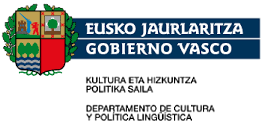Dokumentuaren akzioak
Dancers preserve a piece of Basque culture
The Valley's Oinkari Basque Dancers will perform at Jaialdi 2010, along with 18 other dance companies from around the worl.
With their vibrant costumes, high kicks and fancy footwork, the Oinkaris (oin-kar-ies) are celebrating their 50th anniversary this year.
"In this community, dance is a major part of keeping the culture going," said Annie Gavica, Oinkari girls dance director. "In other places, it's music or sports."
It'll also be a highlight at Jaialdi 2010 as the different dance companies express their traditions. One company is coming from the province of Gipuzkoa in the Basque region. It came to Jaialdi in 2000. Another is coming from Iparralde, the name for the French side (including all of the provinces) of the Basque region.
"They all do different dances," Gavica said. "It just depends where the majority of the group is from."
The Boise group grew from humble beginnings in 1960. Seven Boiseans started it all - Al Erquiaga, Delphina and Diana Urresti, Toni Murelaga, Simon Achabal, Clarine Anchustegui and Bea Solosabal - during a summer trip to Europe.
While visiting the Basque country, they met a group of dancers who called themselves the Oinkaris, which loosely means dancing feet. When the Boiseans visited Spain, dictator Francisco Franco was ruthlessly suppressing Basque culture. Basques couldn't fly their flag, speak their language or write down their music.
The novice American dancers had to try to remember the songs, and two dances, until they got home and could re-create them.
Fast forward 50 years, and today there are more than 700 alumni of the Oinkari Basque Dancers who remain devoted to preserving traditional dances. They come from a time when men fought battles with swords and women covered their heads in public.
Staying true to the past is important, said dancer Izar Bicandi.
"Some groups will change things up because it's a live culture and there's evolution," she said. "If we evolve too much, we separate ourselves (from our history)."
Each Basque province has its own unique style of dance and costume. During Jaialdi, the Oinkaris will perform dances from Iparralde for the first time.
"Because a group is coming from the French side, we wanted to show them that even though most of the people in Boise are from (the province of) Bizkaia, we're trying," Bicandi said.
Learning a new dance involves research to ensure the company maintains its authenticity, she said.
For example, when a teacher from a town near Bilbao came to Boise for a workshop, the Oinkaris took the class, recorded the sessions and made DVDs so dancers could practice at home.
"We try not to learn from videos because there's so much room for error," Bicandi said.
About 60 Oinkaris will perform during Jaialdi, said Nick Bicandi.
What drives the interest in the local dance group is not just the close-knit community, but the parents who were once Oinkaris, he said. They help keep the next generation interested and participating in their cultural history, he said.
Caitlyn Johnson's mom is Basque. Johnson, 17, has been dancing Basque dances for 13 years. She started in kindergarten with Herri Batza Danzaria in Homedale.
"I love keeping up with our culture because it's such an important part of my life," she said. "It's good that we have a little piece in America to keep it going."
Oinkari also is fortunate to have enough talented musicians so that the dancers can perform to live music, Gavica said. One of them is Miren Aizpitarte, 17, who taught herself to play the alboka (al-bo-ka), a Basque instrument that dates back to ancient times and resembles a curved clarinet with a cow horn on the end.
The sound, similar to bagpipes, comes from circular breathing. Aizpitarte practiced for three months before the breathing clicked.
She'll play the alboka for another new dance the company will perform during Jaialdi called Arratiako. The Oinkaris learned the dance from a group that came to the 2005 Jaialdi.
"As you get older, the concentration of Basque people spreads out and people forget," Aizpitarte said. "It doesn't matter how much Basque you are, but how involved you are with it."
Dokumentuaren akzioak






